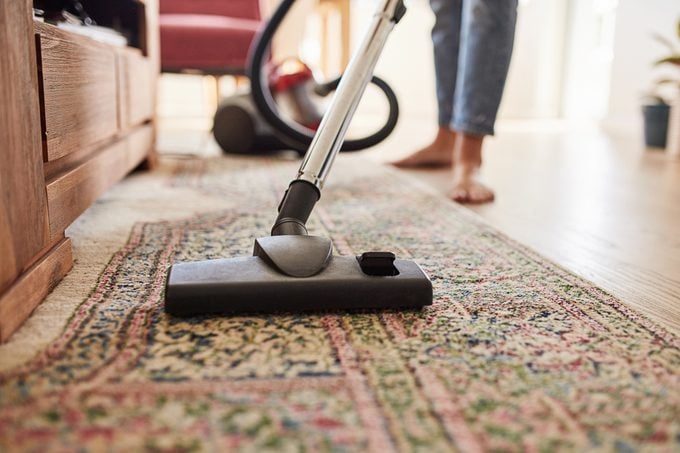15 Home Remedies for Asthma That Experts Recommend
Updated: Jun. 23, 2021
Home remedies for asthma, from coffee to fish oil, won't replace your medications, but they can manage triggers and prevent flare-ups.
Can home remedies help with asthma?
Asthma is a serious illness, affecting over 25 million Americans. It can range in severity from mildly inconvenient to completely disabling and, rarely, can end in death.
Even moderate asthma can have a big impact on your life, limiting your ability to work, take care of your family, or enjoy your hobbies.
It makes sense that people are looking for any way to help manage their asthma, including using home remedies.
There is no cure for asthma so when we talk about home “remedies,” we’re really talking about lifestyle changes you can make to prevent triggering an attack and to manage asthma symptoms when it does flare up, says Anthony Gerber, MD, a pulmonologist and professor of pulmonary, critical care, and sleep medicine at National Jewish Health and an associate professor of medicine at the University of Colorado Denver.
Before you make any changes, however, you should have a talk with your doctor about your medical treatment plan. Most asthma is managed with a combination of medications and lifestyle changes, and either one alone isn’t as effective, Dr. Gerber says.
Medications, including oral and inhaled steroids, are an important and life-saving part of treating asthma. There are no home substitutes for your asthma medications, and you should follow your doctor’s instructions for how and when to take them.
The goal is to get your asthma under daily control, Dr. Gerber says, adding that you should always carry your rescue inhaler in case of an acute attack.
(Here are some of the surprising causes of asthma to know.)

When to seek medical help
An asthma attack is characterized by shortness of breath. Other signs include coughing that doesn’t stop, wheezing or breathing noisily, chest pain or tightness, feeling of air hunger, hyperventilating, sweating, and dizziness.
However, an asthma attack can feel different from person to person, especially at the beginning, so it’s important to know what one feels like to you. The sooner you can identify what is happening, the easier it will be to treat it.
Most asthma attacks can be treated with a rescue inhaler and rest, but if your symptoms don’t resolve, or if they get worse, you need to seek immediate medical attention.
You should seek emergency medical help if you have extreme difficulty breathing, feel your throat closing, feel drowsy or faint, can’t speak, and/or need to use your chest muscles to “force” a breath.
Managing your asthma at home
In addition to your medical treatments, there are some things you can do at home to help get and keep your asthma under control.
Start by making a plan, then adjust your environment, manage your triggers, and deal with physical symptoms.
“The majority of asthma is ‘allergic‘ and is triggered by indoor and outdoor allergens,” says Purvi Parikh, MD, an allergist with Allergy & Asthma Network and a clinical assistant professor in the departments of medicine and pediatrics at New York University School of Medicine.
If that’s the case for you, you’ll need to treat not only your asthma but your allergies as well.
“The first step in managing your asthma at home is to work with a board-certified allergist and learn what your triggers are so you can make a plan to avoid them,” Dr. Parikh says.
(You can also check out these strategies to manage allergy-induced asthma.)
Here are the things our panel of experts recommends trying at home, starting with adjusting your environment and managing your triggers.
How to make environmental adjustments
You can’t control everything, but making your home and office as safe as possible will go a long way toward reducing your asthma attacks.
You can start by looking for these common air pollutants in your home.
Minimize exposure to air pollution
Stay indoors on days with poor air quality and limit exercising outdoors. Keep your windows closed, especially when you are sleeping.
(These are the signs you have exercise-induced asthma.)
Wear a mask
Thought you were done with masks? Not necessarily.
There are a lot of good reasons to wear a face mask other than for protection against Covud-19. All those N95 medical masks stockpiled during the pandemic are great for keeping out particles that can trigger asthma symptoms.
Wear a mask if you have to go outdoors on days that have poor air quality due to pollution, allergens, or wildfire smoke. Note: surgical and homemade masks are helpful but not nearly as good as an N95 or similar medical-grade mask.
Use dust mite covers
If you’re allergic to dust mites—tiny bugs that feed on the dead skin cells, sweat, and other debris that makes up the dust in our homes—then hypoallergenic covers are a game-changer. You can buy covers for your bed, pillows, couches, and even car seats.

Clean carpets and air ducts regularly
Carpeting holds a lot of allergenic material. Don’t have more carpets than necessary, and thoroughly clean the ones you do have on a regular basis.
And get your air ducts cleaned out at least twice a year so they’re not spewing dust, mold, pollen, and pet hair.
Have a fragrance-free home
Buy hypoallergenic detergents, soaps, and personal grooming products, and ask visitors to refrain from wearing scented lotions or perfumes. These scents can trigger asthma.
Use an air filter
Install a high-efficiency particle air (HEPA) whole-house air filter or, if that’s not in the budget, put portable air purifiers in the rooms you spend the most time in.
Not sure which model is best for health? Considering getting one of these air purifiers for asthma.
Be careful with humidifiers, cautions Dr. Gerber, as the moisture can be a breeding ground for mold, aerosolizing the particles and making your asthma worse.
Pick your cleaning products wisely
Getting rid of dust, mold, dirt, and pet hair is important, but it matters what you use to clean.
Stick with natural cleaners as much as possible, as many commercial cleaning products are considered respiratory irritants that can cause inflammation in your lungs, leading to more asthma flare-ups, according to a 2021 study published in The Journal of Allergy and Clinical Immunology: In Practice.
How to manage asthma triggers
Avoiding your known triggers is an integral part of getting and keeping your asthma under control.
So your first order of business is determining what causes asthma symptoms for you. Once you do that, you can work to manage them.
Change your diet
For many people, certain foods trigger their asthma.
Meet with an allergist to determine which foods you are allergic to so you can avoid eating them.
Some people find some relief from asthma symptoms, like congestion or coughing, by eating an anti-inflammatory diet, which avoids processed and sugary foods.
Get a flu shot
Viruses are a known trigger for asthma, so getting vaccinated can help. Talk to your doctor about which vaccines you should be getting.
Here’s everything you need to know about getting a flu shot.
Get enough sleep
People with asthma who got too little or too much sleep were far more likely to have flare-ups than people who got a healthy amount of rest each night, according to a 2020 study of 1,389 adults, published in the Annals of Allergy, Asthma & Immunology.
Do a daily sinus rinse
Rinsing out your nasal passageways with sterile salt water can remove allergens and mucous, helping you breathe more easily.
Using a neti pot? Here are some neti pot safety tips to know before you begin.
Drink some caffeine
People with asthma who drank a cup of coffee experienced a modest improvement in their breathing for up to four hours afterward, according to a 2010 review of seven studies, published in Cochrane Database of Systematic Reviews.
Caffeine is a weak bronchodilator—a substance that relaxes bronchial muscles—and reduces fatigue in the muscles you use to breathe. It is also chemically related to the drug theophylline, which is used to treat asthma.
Take a fish oil supplement
Omega-3 fatty acids, the main ingredient in fish oil, are known to have anti-inflammatory properties, and that appears to make a difference for people with asthma, according to a 2018 study published in the American Journal of Respiratory and Critical Care Medicine.
Researchers tested 135 children with asthma and found that those who had the highest intake of Omega-3s had the fewest asthma symptoms.
Pop a vitamin D pill
The so-called “sunshine vitamin” may help you keep your symptoms at bay.
People who took a daily vitamin D supplement, in addition to their standard asthma treatment, significantly reduced the risk of severe asthma, according to a 2016 study published in Cochrane Database of Systematic Reviews.
What’s more, the supplement offered benefits without any side effects.
Vitamin D has been shown to reduce inflammation and strengthen the immune system.
Download an asthma tracking app
Knowledge is power when it comes to managing asthma, and technology can be a big help.
Dr. Gerber recommends using an app to digitally track your symptoms, note your triggers, manage medications, and create reports to show your doctor.
There are several good ones on the market, but Propeller is highly rated by both doctors and patients.
The app comes with a sensor to put on your inhaler, which lets you and your doctor track how often you’re needing to use it. It also has an “allergy forecast” to let you know what the air quality is like in your area that day.
Next, here’s an asthma diet guide on the best and worst foods to eat.





















